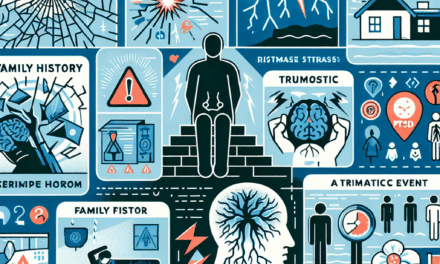Embracing AI in Healthcare: Navigating Fear and Confidence

The integration of Artificial Intelligence (AI) into healthcare is transforming the industry at an unprecedented pace. While AI offers numerous benefits, it also brings challenges and fears that need to be addressed. This article explores the dual nature of AI in healthcare, focusing on how to navigate the fear and build confidence in its use. We will delve into five key subtopics: the potential of AI in healthcare, ethical considerations, overcoming fear and resistance, building trust and confidence, and the future of AI in healthcare.
The Potential of AI in Healthcare
AI has the potential to revolutionize healthcare by improving diagnostics, personalizing treatment plans, and enhancing patient care. The technology can analyze vast amounts of data quickly and accurately, providing insights that were previously unattainable.
Improving Diagnostics
AI’s ability to process and analyze large datasets makes it an invaluable tool in diagnostics. Machine learning algorithms can identify patterns in medical images, such as X-rays and MRIs, with a level of accuracy that rivals or even surpasses human experts. For instance, a study published in Nature Medicine demonstrated that an AI system developed by Google Health could detect breast cancer in mammograms more accurately than radiologists.
Moreover, AI can assist in diagnosing rare diseases by analyzing genetic data and identifying mutations that may be responsible for a patient’s condition. This capability is particularly beneficial in cases where traditional diagnostic methods fall short.
Personalizing Treatment Plans
AI can also play a crucial role in personalizing treatment plans for patients. By analyzing data from electronic health records, wearable devices, and other sources, AI can help healthcare providers tailor treatments to individual patients’ needs. This approach not only improves patient outcomes but also reduces the risk of adverse effects.
For example, IBM’s Watson for Oncology uses AI to analyze a patient’s medical history and suggest personalized treatment options based on the latest research and clinical guidelines. This technology has been implemented in several hospitals worldwide, helping oncologists make more informed decisions.
Enhancing Patient Care
AI can enhance patient care by streamlining administrative tasks and improving communication between healthcare providers and patients. Chatbots and virtual assistants can handle routine inquiries, schedule appointments, and provide medication reminders, freeing up healthcare professionals to focus on more complex tasks.
Additionally, AI-powered tools can monitor patients’ vital signs and alert healthcare providers to potential issues before they become critical. This proactive approach can lead to earlier interventions and better patient outcomes.
Ethical Considerations
While AI offers significant benefits, it also raises ethical concerns that must be addressed to ensure its responsible use in healthcare. These concerns include data privacy, algorithmic bias, and the potential for job displacement.
Data Privacy
AI systems rely on vast amounts of data to function effectively, raising concerns about patient privacy and data security. Healthcare organizations must ensure that patient data is collected, stored, and processed in compliance with regulations such as the General Data Protection Regulation (GDPR) and the Health Insurance Portability and Accountability Act (HIPAA).
To address these concerns, organizations can implement robust data encryption methods, access controls, and regular audits to protect patient information. Additionally, patients should be informed about how their data will be used and given the option to opt-out if they choose.
Algorithmic Bias
AI systems can inadvertently perpetuate or even exacerbate existing biases in healthcare. For example, if an AI algorithm is trained on a dataset that lacks diversity, it may produce biased results that disproportionately affect certain patient groups.
To mitigate this risk, developers must ensure that AI systems are trained on diverse and representative datasets. Regular audits and testing should also be conducted to identify and address any biases that may arise.
Job Displacement
The automation of certain tasks through AI may lead to job displacement for some healthcare workers. While AI can handle routine tasks, it cannot replace the empathy and critical thinking skills that human healthcare providers bring to patient care.
To address this concern, healthcare organizations should focus on reskilling and upskilling their workforce to adapt to the changing landscape. By embracing AI as a tool to augment human capabilities rather than replace them, healthcare providers can ensure that their workforce remains relevant and valuable.
Overcoming Fear and Resistance
The introduction of AI in healthcare has been met with fear and resistance from some stakeholders, including healthcare providers, patients, and policymakers. Addressing these concerns is crucial to ensuring the successful integration of AI into the healthcare system.
Addressing Healthcare Providers’ Concerns
Healthcare providers may fear that AI will replace their jobs or undermine their expertise. To alleviate these concerns, it is essential to emphasize that AI is a tool designed to support and enhance their work, not replace it.
Training programs and workshops can help healthcare providers understand how to use AI effectively and integrate it into their practice. By demonstrating the benefits of AI and providing hands-on experience, healthcare providers can become more comfortable and confident in using the technology.
Engaging Patients
Patients may be wary of AI due to concerns about data privacy, algorithmic bias, and the impersonal nature of technology. To build trust, healthcare organizations must be transparent about how AI is used and the measures in place to protect patient data.
Engaging patients in the decision-making process and providing clear explanations of how AI can improve their care can help alleviate fears and build confidence in the technology. Additionally, offering patients the option to opt-out of AI-driven interventions can empower them to take control of their healthcare journey.
Policymaker Involvement
Policymakers play a crucial role in shaping the regulatory framework for AI in healthcare. By involving policymakers in the development and implementation of AI technologies, healthcare organizations can ensure that regulations are aligned with the needs and concerns of all stakeholders.
Policymakers should work closely with healthcare providers, patients, and AI developers to create guidelines that promote the responsible use of AI while addressing ethical concerns. This collaborative approach can help build confidence in AI and facilitate its integration into the healthcare system.
Building Trust and Confidence
Building trust and confidence in AI is essential for its successful adoption in healthcare. This requires a multifaceted approach that involves transparency, collaboration, and continuous improvement.
Transparency and Communication
Transparency is key to building trust in AI. Healthcare organizations should be open about how AI is used, the data it relies on, and the measures in place to protect patient privacy. Clear communication about the benefits and limitations of AI can help manage expectations and build confidence in the technology.
Regular updates and reports on the performance of AI systems can also help build trust by demonstrating their effectiveness and reliability. By keeping stakeholders informed, healthcare organizations can foster a culture of transparency and accountability.
Collaboration and Partnership
Collaboration between healthcare providers, AI developers, and other stakeholders is crucial for building trust and confidence in AI. By working together, these groups can ensure that AI technologies are developed and implemented in a way that meets the needs of all stakeholders.
Partnerships with academic institutions and research organizations can also help advance the development of AI in healthcare by providing access to cutting-edge research and expertise. These collaborations can lead to the creation of more effective and reliable AI systems that benefit patients and healthcare providers alike.
Continuous Improvement
AI is a rapidly evolving field, and continuous improvement is essential to ensure its successful integration into healthcare. Healthcare organizations should regularly evaluate the performance of AI systems and make necessary adjustments to improve their accuracy and reliability.
Feedback from healthcare providers and patients can provide valuable insights into the strengths and weaknesses of AI systems. By incorporating this feedback into the development process, organizations can create more effective and user-friendly AI technologies.
The Future of AI in Healthcare
The future of AI in healthcare is promising, with the potential to transform the industry in ways we have yet to imagine. As technology continues to advance, AI will play an increasingly important role in improving patient care and outcomes.
Advancements in AI Technology
Advancements in AI technology, such as natural language processing and deep learning, will enable more sophisticated and accurate analysis of medical data. These technologies will allow AI systems to understand and interpret complex medical information, leading to more accurate diagnoses and personalized treatment plans.
Additionally, the integration of AI with other emerging technologies, such as the Internet of Things (IoT) and blockchain, will further enhance its capabilities and applications in healthcare.
Expanding Applications
The applications of AI in healthcare are expanding beyond diagnostics and treatment planning. AI is being used to develop new drugs, predict disease outbreaks, and optimize healthcare operations. These applications have the potential to improve patient outcomes, reduce costs, and increase the efficiency of healthcare systems.
For example, AI-powered drug discovery platforms can analyze vast amounts of data to identify potential drug candidates more quickly and accurately than traditional methods. This approach can significantly reduce the time and cost of bringing new drugs to market.
Global Impact
The global impact of AI in healthcare is significant, with the potential to improve access to care and address health disparities. AI can help bridge the gap between developed and developing countries by providing affordable and scalable solutions to healthcare challenges.
For instance, AI-powered telemedicine platforms can connect patients in remote areas with healthcare providers, improving access to care and reducing the need for travel. Additionally, AI can help identify and address health disparities by analyzing data to identify patterns and trends that may contribute to unequal access to care.
Conclusion
Embracing AI in healthcare requires navigating both fear and confidence. While AI offers significant benefits, it also raises ethical concerns and challenges that must be addressed. By focusing on transparency, collaboration, and continuous improvement, healthcare organizations can build trust and confidence in AI and ensure its successful integration into the healthcare system.
The future of AI in healthcare is promising, with the potential to transform the industry and improve patient outcomes. By embracing AI as a tool to augment human capabilities, healthcare providers can harness its potential to deliver better care and address the challenges facing the healthcare system today.





